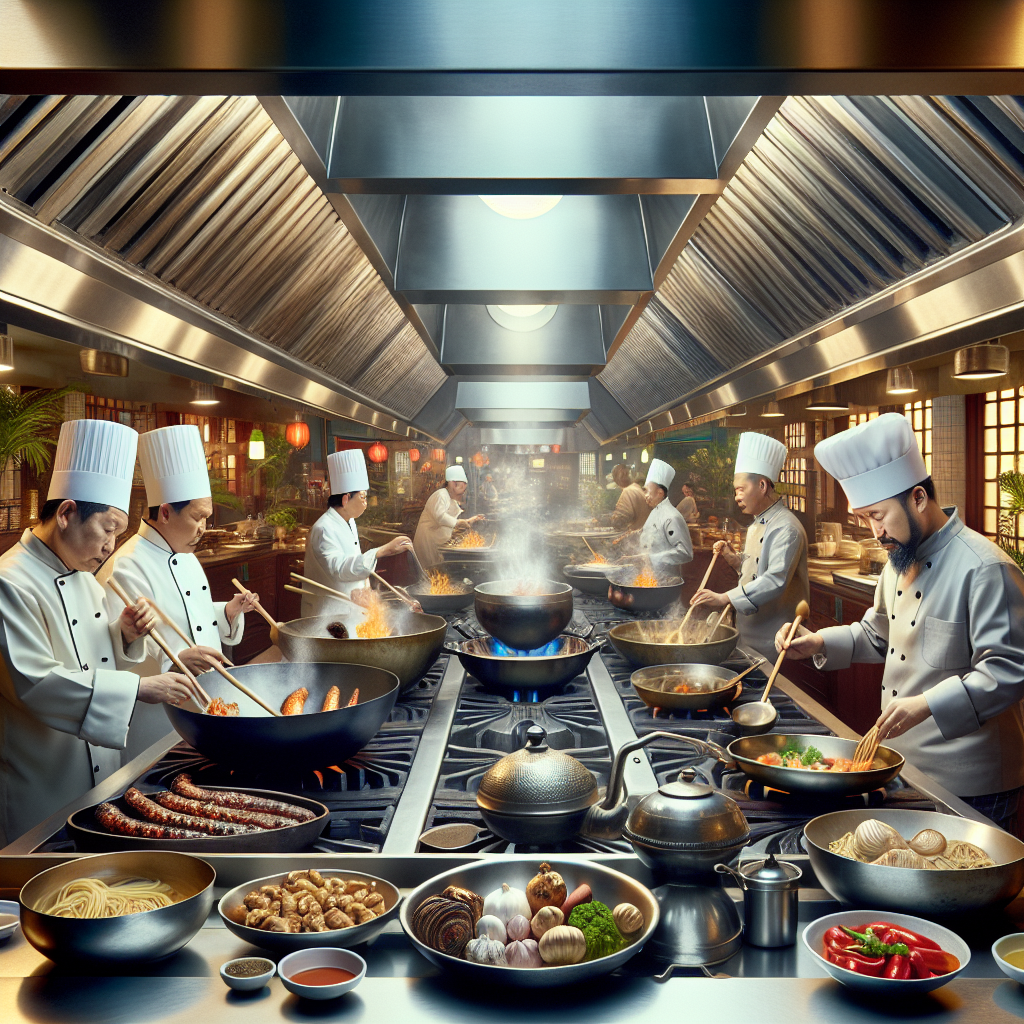Global Kitchen Hygiene: Essential Hood Cleaning for Diverse Cuisines
Introduction
When it comes to running a successful restaurant, the importance of proper hood cleaning cannot be overstated. This is particularly true in a multicultural culinary landscape like Sacramento, where restaurants serve a variety of global cuisines. Hood cleaning is essential for maintaining a safe and efficient kitchen, reducing fire hazards, and ensuring food quality. In this guide, we will explore the specific hood cleaning considerations for restaurants specializing in different cultural cuisines, helping businesses maintain high standards while celebrating culinary diversity.
The Universal Importance of Hood Cleaning
Before diving into specific cultural considerations, it’s crucial to understand why restaurant hood cleaning is vital for every establishment. Hoods are designed to capture smoke, grease, and other airborne particles produced while cooking. Over time, these particles accumulate and can pose serious risks, including:
- Fire hazards
- Reduced ventilation efficiency
- Decreased air quality
- Health code violations
Whether your kitchen specializes in American fast food or intricate Japanese sushi, regular exhaust hood cleaning is a non-negotiable aspect of restaurant management.
American Cuisine
Let’s start with the good old American cuisine. High grease levels from frying hamburgers, bacon, and other fatty foods make American kitchens especially prone to grease buildup. For such kitchens, frequent commercial kitchen hood cleaning is necessary to prevent grease fires and maintain air quality. Given the higher grease production, recommended cleaning intervals are generally every three months or more often if required.
Cleaning Tips for American Kitchens
- Use heavy-duty degreasers to break down stubborn grease.
- Regularly inspect and replace filters to ensure optimal performance.
- Implement a daily cleaning routine for visible surfaces.
Italian Cuisine
Italian cuisine features a mix of frying and extensive use of oils in dishes like pastas and pizzas. Although less greasy than American cuisine, the use of oils means Italian kitchens benefit from consistent commercial kitchen hood cleaning.
Cleaning Tips for Italian Kitchens
- Incorporate a weekly routine for hood cleaning focused on removing oil residues.
- Stay vigilant about cleaning pizza ovens and other high-heat appliances.
- Use natural degreasers like vinegar in addition to commercial products for a more eco-friendly approach.
Chinese Cuisine
Woks and high-heat cooking methods typical of Chinese cuisine can produce significant amounts of grease and smoke. These kitchens need specialized hood systems capable of handling intense grease and should therefore schedule more frequent hood cleanings.
Cleaning Tips for Chinese Kitchens
- Invest in high-performance hoods designed for high-heat cooking methods.
- Schedule monthly or bi-monthly cleanings to prevent buildup.
- Train staff to regularly wipe down visible grease accumulations.
Indian Cuisine
Indian cuisine’s extensive use of ghee, oils, and spices creates thick, sticky residue that can quickly clog hoods and vents. This makes regular restaurant hood cleaning essential for Indian kitchens.
Cleaning Tips for Indian Kitchens
- Use specialized spice-resistant filters to prevent clogging.
- Conduct thorough clean-ups every quarter to remove stubborn residue.
- Regularly clean exhaust fans to maximize ventilation.
Mexican Cuisine
Mexican cuisine involves a diverse range of cooking methods, from frying to grilling and slow-cooking. The grease and smoke produced necessitate regular hood maintenance to ensure safety and efficiency.
Cleaning Tips for Mexican Kitchens
- Opt for hoods with strong suction power to manage high smoke levels.
- Perform bi-monthly cleanings to maintain optimal performance.
- Use a combination of mechanical cleaning and chemical degreasers.
Mediterranean Cuisine
Mediterranean cuisine often features grilling and the use of olive oil, producing less grease but still requiring diligent hood maintenance. Specialized Mediterranean kitchens should adopt a balanced approach to hood cleaning.
Cleaning Tips for Mediterranean Kitchens
- Invest in high-quality filters to capture fine oil particles.
- Schedule seasonal deep cleanings to complement regular maintenance.
- Use mild, eco-friendly cleaning agents to clean hoods and filters.
African Cuisine
African cuisine varies widely but often includes frying and the use of palm oils, which can create significant grease buildup. These kitchens benefit from tailored exhaust hood cleaning schedules to manage specific cooking residues.
Cleaning Tips for African Kitchens
- Incorporate frequent inspections to address unique residues.
- Choose filters designed to handle palm oil emissions.
- Regularly clean ductwork to prevent extensive buildup.
Conclusion
Regardless of the type of cuisine, maintaining a clean and efficient exhaust hood system is crucial for the safe operation of any restaurant. If you’re looking for the Best Hood Cleaning service in Sacramento, making regular appointments with a professional cleaner is a sound investment. Don’t let grease buildup compromise your kitchen’s safety and efficiency. For comprehensive hood cleaning services, check out our highly recommended experts.







